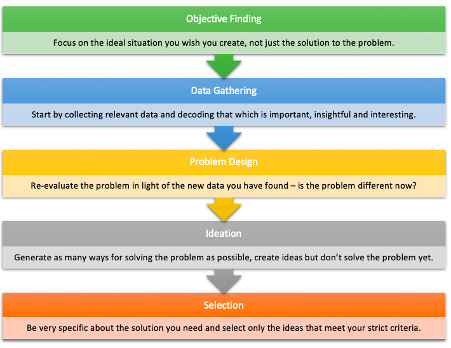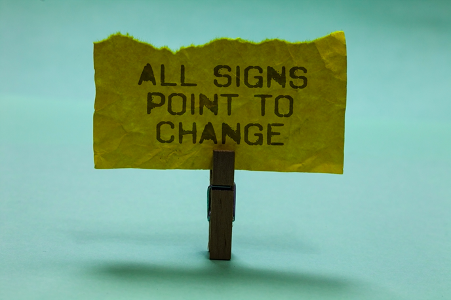
The job market is constantly changing and so too are the mix of skills required to compete in our fast-paced business world. It is therefore important to be aware of the top skills that employers are recruiting for and to develop them through practice or short-term training.
Broadly speaking, skills can be categorised into hard and soft, whereby the former relates to technical and specialised knowledge, and the latter to cognitive and behavioural abilities. In other words, while hard skills focus on the employee’s ability to do the job, soft skills are more about how the employee approaches his or her tasks. Both types of skills are interrelated and crucial to successful performance at work, but in this article, we will explore the category that is harder to identify and measure - soft skills. We use them every day in our interactions with co-workers, clients or customers, and most of us have developed a pretty good portfolio of soft skills through life experience. But which specific soft skills will impress the majority of employers the most?
By analysing the skills of the people who are currently being hired at the highest rate and comparing them to the level of supply of these same skills, LinkedIn has created a list of the five most in-demand soft skills for 2020. Regardless of your chosen career or level of responsibility, having and developing in the below competencies will ensure you are more competitive in the job market and differentiate you from the hundreds or even thousands of candidates applying for your dream position.
1. Creativity

Creativity is a crucial factor for business success. The ability to tap into our imaginations and figure out ways to use resources in strategic way to solve complex problems can add incredible value for employers. Creativity is also at the heart of innovation, and bringing novel ideas into life faster and better than competitors is often what differentiates market leaders from those who follow. Given the strategic importance of creativity to a thriving business, it is perhaps not so surprising that this skills ranks in the first place!
You may be saying to yourself “But I’m not a very naturally creative person”. It’s time to push those thoughts aside. There is a misconception out there that creativity is an inherent trait that is bestowed upon a few lucky people. Conversely, while creativity does come more easily to some than to others, it is nevertheless a skill that needs to be practised and can be learned, regardless of your level of natural ability. Experienced creative director, designer, writer, author and speaker, Stefan Mumaw says that in fact there is a five-step creative process that we can apply to any situation to build on this skill, a summary of which is provided below:

There are many approaches to the creative process and we encourage you to explore the different ways it can be applied in your daily work life. “Tell me about a time when you were faced with a complex problem and how you overcame it?” is a very common interview question, and is also the perfect opportunity to walk the interviewer through your creative process in solving the problem! Learning how to generate novel quality solutions for various issues, even if they are minor ones, will therefore give you great leverage during the candidate selection process and help you progress upwards in your career.
2. Persuasion

In our competitive global marketplace, where so many companies are offering their products and services, persuasion is an especially valuable soft skill to have as it can help organisations create more business. We’ve probably all heard of social media influencers, who have access to a large audience and can persuade others by virtue of their authenticity, hence generating a lot of revenue for the businesses they partner with. Companies are therefore keen to hire permanent staff who have the ability to influence decision makers and pave the way for new profitable business ventures.
Persuasion is key to successful sales performance and is also an essential trait for anyone in a management role. Leaders must influence their teams to perform, guide them through periods of change and keep morale high. Furthermore, having this form of authentic power is important when difficult group decisions need to be made quickly, and in order to successfully introduce an unconventional point of view for consideration.
According to expert, Kurt Mortesen, successful persuaders keep promises; they are reliable, sincere and take on responsibility; they build rapport and understand their audience through active listening; they look for common grounds and they know how to communicate appealing benefits. Having high emotional intelligence, which will be discussed below, is therefore also an integral part of being a good persuader.
3. Collaboration

Collaboration occurs when two or more people work together to reach a common goal that benefits the organisation. Teamwork is an important part of achieving organisational objectives, improving productivity and solving complex problems, as it pools together a range of different skills, talents and perspectives. Two heads are always better than one and companies look for employees who understand the importance of collaboration in high-functioning teams. Showing an ability to collaborate also indicates your willingness to learn from others, compromise and be open minded to new ideas. Collaboration supports creativity and innovation, as ideas can be brainstormed and improved upon when several minds come together. According to job search expert, Alison Doyle, employers look for people who are able and willing to balance personal achievement with group goals.
4. Adaptability

The only constant in life is change. Being able to embrace this fact and leverage on the opportunities that come with change is a significant feature of the world’s most successful businesses and people. The global pandemic has only reinforced the importance of adaptability in the workplace, hence, now more than ever, employers are on the hunt for resilient people with this particular soft skill.
Being adaptable also includes using your own judgement when you have limited explicit instruction and guidance. Sometimes situations are not black and white; you may face issues that you were not explicitly trained to handle. Having the ability to nevertheless critically analyse the situation and make a calculated decision based on evidence is a strong feature of adaptability. According to Martin Reeves, senior partner and managing director at Boston Consulting Group in San Francisco:
“Sustainable competitive advantage no longer arises exclusively from position, scale, and first-order capabilities in producing or delivering an offering. All those are essentially static. So where does it come from? Increasingly, managers are finding that it stems from the “second-order” organizational capabilities that foster rapid adaptation. Instead of being really good at doing some particular thing, companies must be really good at learning how to do new things.”
Organisations that wish to remain competitive must therefore hire individuals who accept change as an important part of sustainability. Agile businesses require flexible people who not only adapt well, but who are also curious and willing to create and lead in change too.
5. Emotional Intelligence

Emotional intelligence is new to the list of top skills this year, but is considered just as important as intellectual ability. Having a high IQ may mean you’re good at using information and logic to answer questions, but suggests little about your level of self- awareness or ability to understand other people you need to collaborate with in a workplace setting.
According to organisational psychologist, Gemma Leigh Roberts, emotional intelligence is often what differentiates high achievers from the rest of the crowd. In fact, employers often include EQ assessments as part of their selection process. This skill requires having the ability to perceive, evaluate and respond appropriately to your own emotions as well as that of others. Having emotional intelligence is essential for building strong relationships and building effective working team. It can be defined by four attributes:
1. Self-management:
· the ability to control impulsive feelings and behaviours
· to manage emotions well
· to keep commitments
· to adapt to change
2. Self-awareness:
· the ability to recognise your emotions and understand how they affect your thoughts and behaviour
· to be aware of your strengths and weaknesses
· to have self-confidence
3. Social awareness:
· the ability to be empathetic
· to recognise the emotions, needs, wants and concerns of others
· to pick up on emotional cues
· to be socially comfortable
· to recognise the power dynamics in a group
4. Relationship management:
· the ability to create, maintain and develop relationships
· to collaborate with others
· to inspire and persuade others
· to manage conflict
Having and building your emotional intelligence is an important part of becoming a mature professional. In order to improve your EQ, practise mindfulness and consciously draw you attention to other people in social situations – try to understand from their perspective and avoid voicing the first thing that come to mind. Recognise how much of what you say is logical and based on reason, and how much is simply you expressing your emotions. Practise being honest with your opinions, while also keeping your audience in mind. A lot of the time, people are not moved by what you say, but by rather how you say it!

There are many other important soft skills to develop, however the above five may be a good place to start in order to improve your employability and career progression opportunities. You may have noticed that the five skills are often interlinked and complement each other, therefore even if you train yourself in one of the five, you will unconsciously develop in the other four too!
Furthermore, if you already have these skills, remember to include them in your resume and LinkedIn profile to ensure you don’t miss out on job opportunities you may be fully qualified for. Regardless of your chosen field of work, the above skills are perfectly transferrable and will assist you in every aspect of your personal and professional life. Happy upskilling!